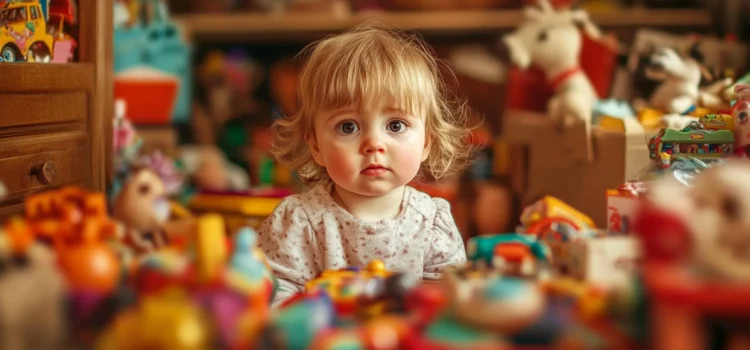
Do you feel guilty when you don’t give your child something they want? How can you raise selfless children?
According to psychotherapist Amy Morin, overindulging parents do more harm to their children than good. Even if the intentions are good, giving your child everything they want will turn them into a self-centered adult one day.
Here’s why you shouldn’t feel guilty for telling your child “no.”
Mentally Strong Parents Don’t Overindulge Their Children
Morin says that one sure way to disrupt the balance of power in your home (and to raise a spoiled, selfish child) is to be an overindulgent parent and treat your child like they’re the greatest person in the world by praising their every action and granting their every request.
She adds that, naturally, you want your child to be confident and strong-willed, but there’s a fine line between confidence and entitlement. A child who thinks they’re exceptional—more important or somehow better than their peers—is likely to grow into a self-centered adult who’s constantly frustrated that the world doesn’t just hand them everything they want.
(Shortform note: Morin warns against overindulgence because it can create feelings of exceptionalism and entitlement. However, in The Subtle Art of Not Giving a F*ck, Mark Manson notes that some people actually develop feelings of entitlement for the opposite reason: Past traumas lead them to believe that they’re damaged in some unique and special way, so they think they’re entitled to special treatment and extra help that they may not really need.)
The way to stop self-assuredness from twisting into self-importance, says Morin, is to shift your child’s focus toward others; get them to think about how they could help people and make the world better, rather than what they believe the world should be doing for them. For example, a gifted student could reframe their intelligence as an opportunity to help struggling classmates, rather than seeing it as an excuse to coast through school.
(Shortform note: Children are more likely to focus on others once they realize that helping people feels good. In fact, some research has shown that being kind to others provides noticeable boosts to happiness and overall well-being—in other words, by helping others, people also help themselves.)
Mentally Strong Parents Don’t Base Decisions on Guilt
Morin says there will inevitably be times when you feel guilty; perhaps you think you’re failing as a parent, or believe you’ve made some terrible mistake. However, don’t try to assuage your own guilt by overindulging your child because that will foster their feelings of self-importance and entitlement.
Instead, the author urges you to carefully examine your feelings of guilt. Determine whether those feelings are justified, or if you only feel bad because you failed to meet some impossible standard. For example, every child gets hurt sometimes, so there’s no reason to feel bad because you didn’t stop your kid from skinning their knee—and there’s certainly no reason to buy them an extra treat to make up for it, no matter how much they try to guilt-trip you about the injury.
(Shortform note: Unjustified guilt—feeling bad when you haven’t done anything wrong—often comes from unreasonable beliefs that you developed as a child. For instance, if your parents or older siblings tended to blame their bad moods on you, perhaps you now believe it’s your job to make sure everyone around you is happy. As a result, you might feel anxious or guilty when someone else is upset, like your child would be after skinning their knee. You can determine whether your guilt is justified or not by considering whether you’ve actually violated one of your values—for example, if you hurt someone or broke a promise. If you can’t find a way that you’ve acted against your values, then your guilt is likely coming from one of those childhood beliefs.)
On the other hand, writes Morin, if you conclude that you did do something wrong, that’s a chance for you to demonstrate accountability. You can apologize to your child, make whatever amends are appropriate, and let them see you handling your feelings in a healthy way. This will help your child learn to examine their own feelings of guilt and respond to them appropriately.
(Shortform note: Some parents never take accountability for their mistakes, which leads to lasting damage in parent-child relationships. For some, the resistance to admitting fault stems from a belief that, as the highest authority figures in the household, they don’t need to be accountable to anyone. Others view apologizing or admitting fault as a sign of weakness. However, this “never apologize” mentality overlooks the benefits that a sincere apology can provide to both parties: When parents apologize, it eases their guilt over mistakes made, while also validating and soothing their child’s hurt feelings. In short, apologizing turns a mistake that could damage a parent-child relationship into an opportunity to strengthen that relationship instead.)






